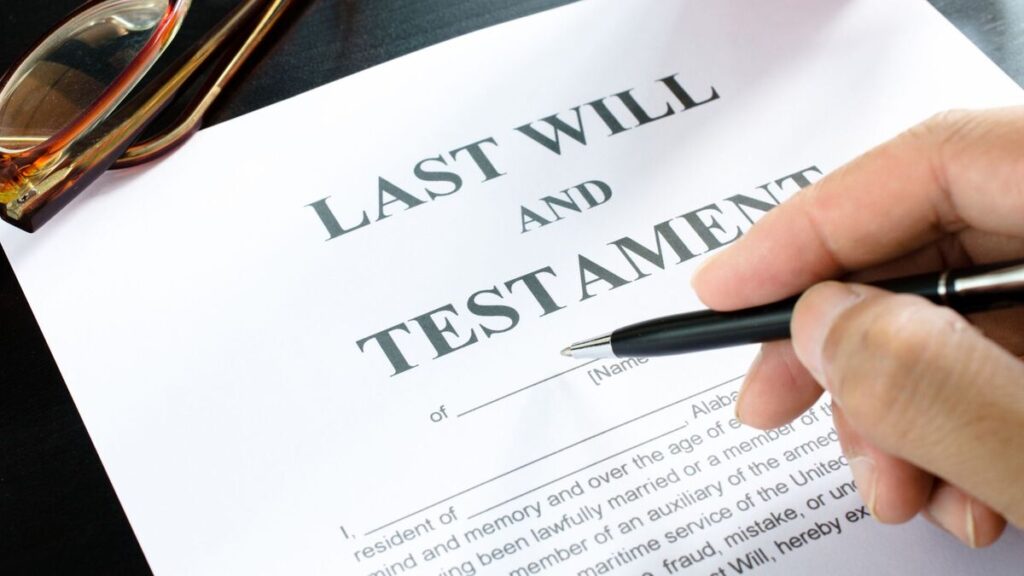
A will is a legal document that explains how a person’s assets and belongings should be distributed after their death. In New York, there are rules a will must follow to be valid and enforceable. Handwritten wills and oral wills do not usually follow these rules. Because of this, handwritten or oral wills are only enforceable in New York in a small number of situations.
This page will explain the requirements for a valid will in New York and whether your loved ones can enforce your handwritten or oral will.
If you have any questions, don’t hesitate to contact attorney Andrew Lamkin of The Law Office of Andrew M. Lamkin, P.C.
Requirements for a Valid Will
When a person dies in New York, their property goes into an estate. If they created a will, the estate’s personal representative is in charge of distributing the estate according to the instructions in the will. Before the personal representative can act, the probate court, called the Surrogate’s Court in New York, must validate the will.
New York law allows you to revoke, alter, or add to your will. But to alter or add to your will, you must execute a new document. You can execute either a new will that replaces the old will or a codicil, which is a written addition to a will.
For a will or codicil to be considered valid in New York, it must meet the following requirements:
- It must be in writing—the will or codicil must be written down, not just verbal.
- The testator must sign it—the testator, which is what the person making the will is called, must physically sign it or direct someone else to sign it in their presence.
- Two or more credible witnesses must witness it—at least two people who are not beneficiaries of the will or the testator’s spouse must include their signature and address.
- The witnesses must sign the will in the presence of the testator—the witnesses must physically sign the will in the presence of the testator and in the presence of each other.
- The testator must have testamentary capacity—the testator must be of sound mind and understand the nature and effect of making a will.
When your will is submitted for probate, the court will ask your attesting witnesses to testify to the will’s execution and your testamentary capacity. If the court finds the will invalid, New York intestate succession law will determine how the estate is distributed.
What Is a Holographic Will?
A holographic will refers to a handwritten will, which is not signed or witnessed according to the rules for a formal will. For the Surrogate’s Court to enforce a holographic will, it must be written entirely in the testator’s handwriting. The court also requires evidence of the testator’s handwriting and their state of mind at the time of execution.
What Is a Nuncupative Will?
When a person explains the provisions of their will to at least two witnesses but never writes them down, it is an oral or “nuncupative” will. For the Surrogate’s Court to accept a nuncupative will, the witnesses must testify to the will’s execution and qualifications.
Are Handwritten or Oral Wills Enforceable in New York?
New York state law recognizes handwritten and oral wills, but only in three specific situations. According to the Estates, Powers, and Trusts Law 3-2.2, a nuncupative or holographic will can only be valid if made by:
- A person on active duty in the military or naval service,
- A civil servant accompanying the military or naval service during a war or armed conflict, or
- A mariner while at sea.
To be valid in New York, a holographic or nuncupative will must fit the relevant definition and be made by a qualifying individual.
If the person making the will is serving with the active armed forces, the will is valid for one year after they leave the service. A will made by a mariner at sea is valid for three years.
When Can You Challenge a Holographic Will?
Anyone whose interests would be jeopardized if the court admits the will to probate may file an objection. This rule applies to the probate of formal, holographic, and nuncupative wills.
To successfully challenge a will, the person objecting must prove that it is invalid. Undue influence, fraudulent signatures, or mental incapacity may invalidate a will. Other grounds for challenging a will include improper execution, fraud, or revisions to the will. There may be other reasons for objecting to a will, but these are the most common ones.
Challenging a will requires a thorough understanding of the legal process and the requirements for a valid will. You have a limited time to contest a will and must provide evidence that your challenge is being brought in good faith and not just to delay or block the distribution of assets. The evidence can include financial and personal records of the testator and other parties, testimony from witnesses, and expert opinions. You must prepare to present this evidence in court and rebut any evidence presented by the other side. An attorney experienced with New York probate proceedings can help you through this process.
Why Is It Important To Have a Will?
Having a will is important because it ensures that your assets and belongings are distributed according to your wishes after you pass away. Without a will, the state’s intestacy laws will determine the distribution of your assets, which may not align with your wishes or provide for certain loved ones.
Create a Valid Will with New York Estate Planning Lawyer Andrew M. Lamkin
Creating a valid will protects your loved ones and your assets. It ensures that your wishes are carried out after your death. However, the process can be complex and challenging to navigate without legal assistance. That’s where an estate planning lawyer can help.
Andrew M. Lamkin has been helping New Yorkers with estate planning and probate matters since 2006. He can provide the knowledge and guidance needed to help you draft a will that meets all legal requirements.Andrew can also help you with other aspects of estate planning, such as creating trusts, advance medical directives, and power of attorney documents. He can also assist you in creating a plan that minimizes taxes and administers the distribution of your assets in the most efficient manner possible. Thanks to his years of experience, Andrew can help you avoid common mistakes that can lead to legal challenges to your will. He can also guide you through the process of challenging a will. Contact the Law Office of Andrew M. Lamkin, P.C., to get started on safeguarding your loved ones’ futures.


